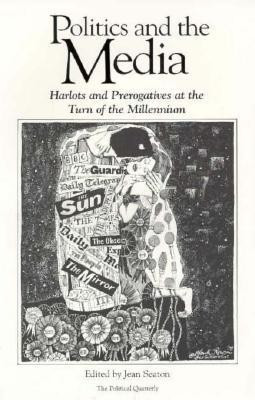Politics and the Media - Harlots and Prerogatives at the Turn of the Millennium(English, Paperback, unknown)
Quick Overview
Product Price Comparison
Spin doctor, soundbite, press secretary, digital, global village, cool Britannia. Politics today is saturated with the jargon and buzzwords of the mass media. How important are they for the way we are governed? How can the ever-expanding impact of the media be controlled? In this up-to-the-minute book, a group of Britain's best-known journalists and media analysts tackle one of the most testing issues facing the nation in the next century. Each essay focuses on the central role of newspapers, broadcasting and information technology in our political life. Peter Riddell shows how the demands of the press and broadcasting have drained Parliament of much of its democratic purpose. Tony Wright gives a fascinating insider's account of the politician-journalist nexus. Andrew Graham points to the monopolistic pressures of the new technology. Colin Seymour-Ure discusses the effects of the end of the party-political allegiances of newspapers. Philip Schlesinger considers the impact of the Scottish media as catalyst for a political micro-climate. Steve Barnett examines the concept of "tabloidization". Eric Barendt weighs up the law as a tool for guarding press impartiality. Ben Pimlott takes a post-Diana look at the monarchy's media dealings. Martin Rowson satiries the press-politician embrace. Finally, Jean Seaton reassesses J. S. Mill's concept of media freedom. Edited by Jean Seaton (co-author of the classic media study Power Without Responsibility) this thought-provoking, intensely readable and often witty collection applies expertise and common sense to complex problems, and shows how dated many assumptions about the mass media have become. The book is essential reading for students of the media and politics, as well as for journalists, politicians and all those concerned about the fast-changing role of mass communications in our democracy.


